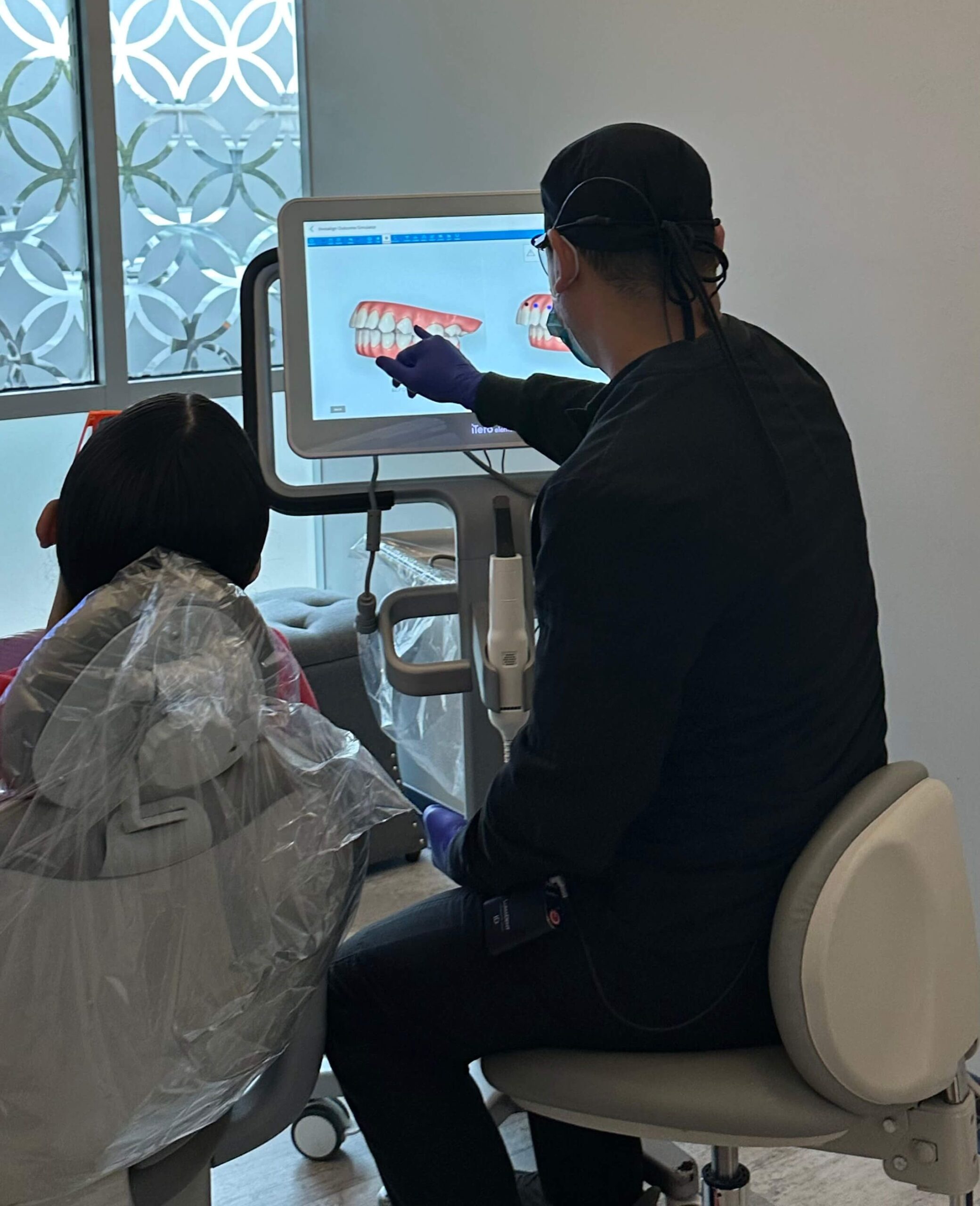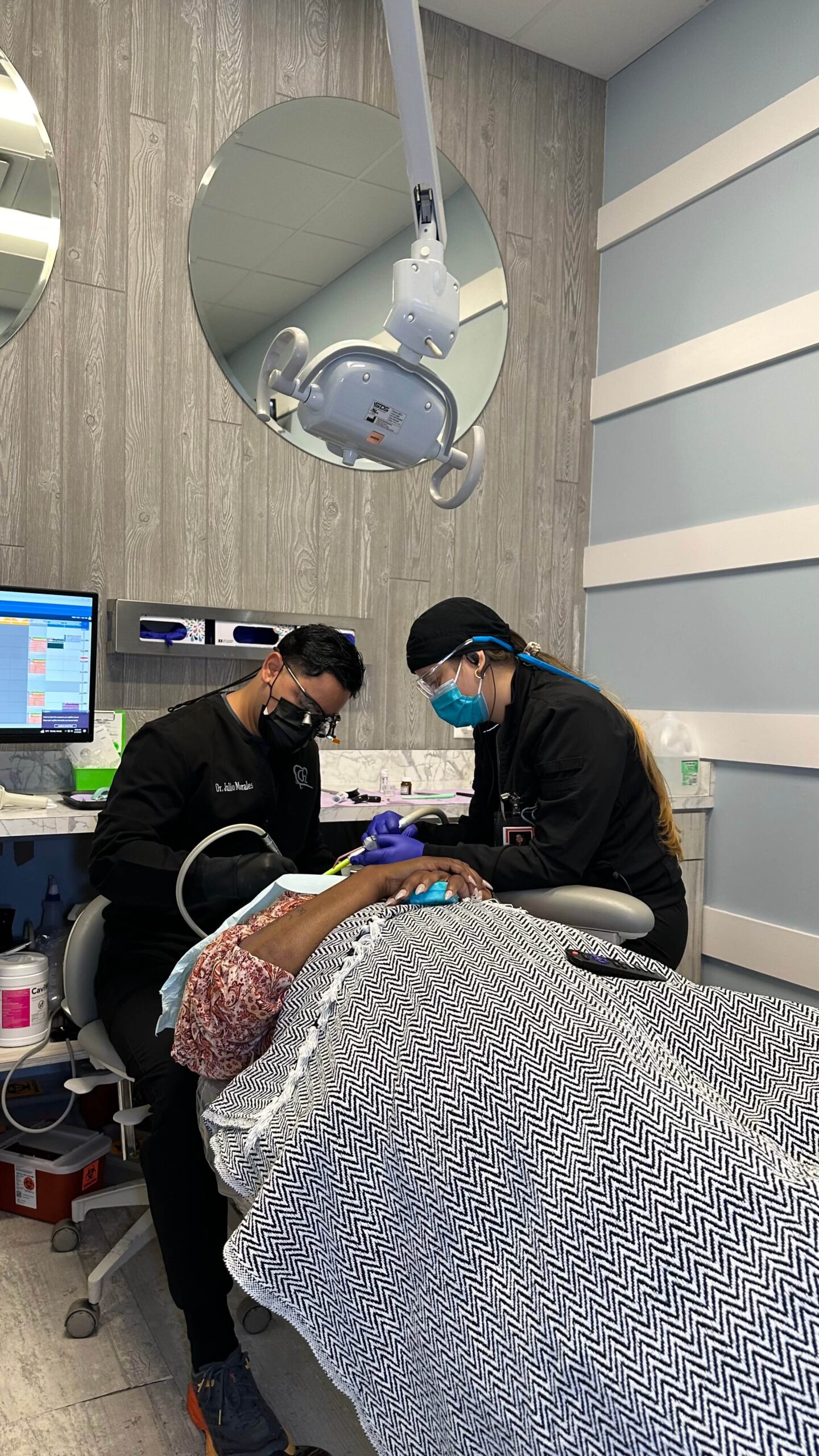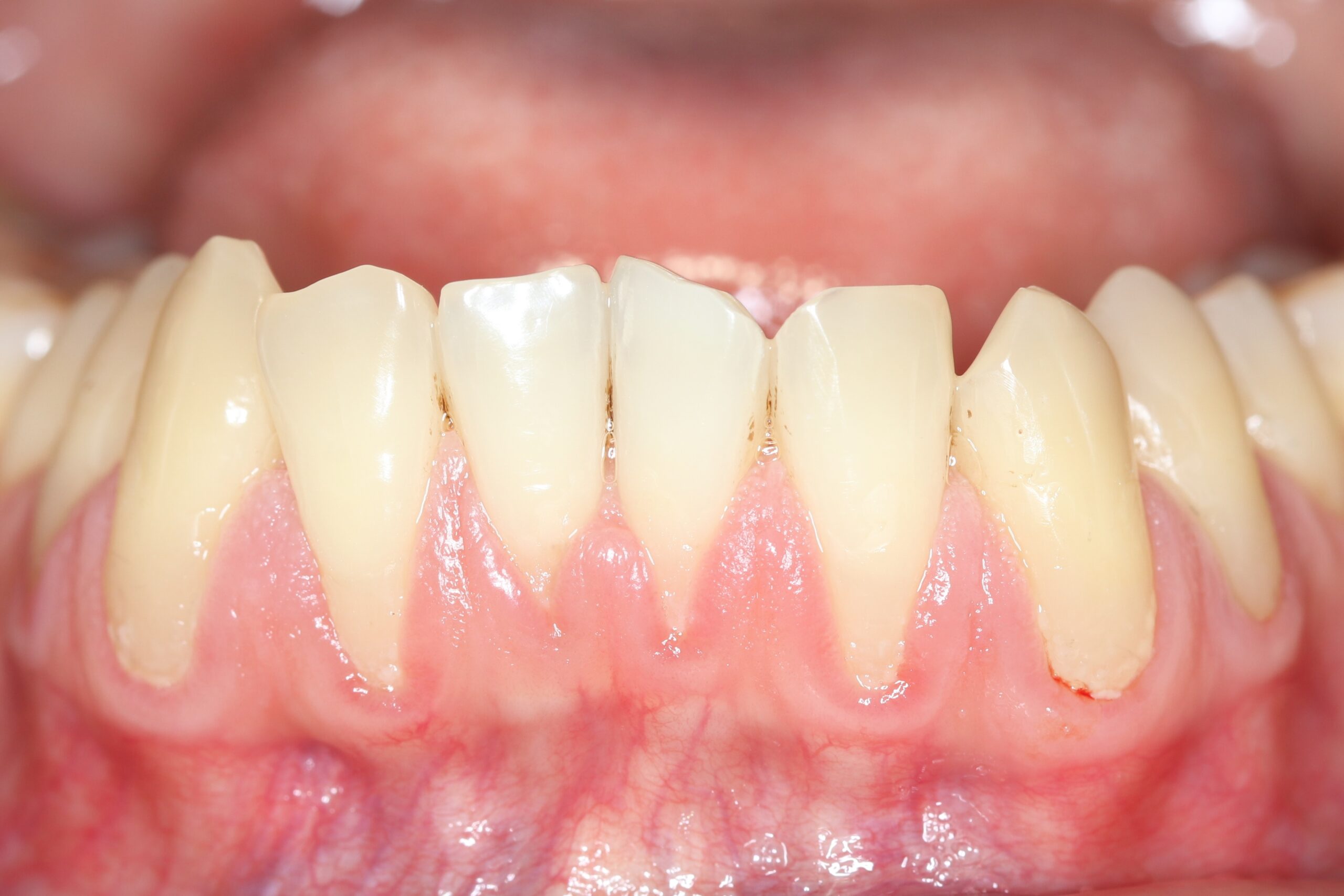Preventive Dentistry
The significance of preventive dentistry extends beyond oral health, impacting overall well-being. Numerous studies have highlighted the connection between oral health and general health, indicating the potential health risks associated with poor oral hygiene. Conditions such as diabetes and heart disease have been linked to dental health, making preventive dental care a top priority. By adopting regular hygiene habits and seeking professional dental advice, you can promote better oral health and, consequently, enhance your overall health.

Defining Preventive Dentistry
Preventive dentistry is a forward-thinking approach to oral health care. Rather than treating issues such as tooth decay, gum disease, or tooth loss after they occur, preventive dentistry aims to stop these problems before they start. It merges regular dental check-ups, which often include routine cleanings and preventive measures like dental sealants or fluoride treatments, with proper at-home oral care.
The success of preventive dentistry hinges on a partnership between you and your dentist. While your dentist and their team are instrumental in spotting potential issues through examinations and cleanings, the responsibility of maintaining regular brushing and flossing routines, as well as adhering to a healthy diet, falls on you.
Preventive dentistry is beneficial for individuals of all ages. For young children, it can ensure their teeth remain strong and healthy as they grow. For adults, it plays a vital role in preserving natural teeth and reducing the need for procedures such as root canals or dental implants.
In a nutshell, preventive dentistry is your best bet for maintaining oral health, significantly reducing the risk and occurrence of more serious, and often more expensive, dental procedures down the line.
The Importance of Preventive Dentistry
Preventive dentistry serves as a proactive approach to oral health, offering numerous benefits. Its primary role is to uphold the health of your teeth and gums, thereby minimizing the risk of gum disease and tooth decay – the leading culprits behind adult tooth loss.
One of the significant advantages of preventive dentistry is its capacity for early detection of dental issues. Many oral health problems, such as cavities, gum disease, and even oral cancer, often start without any noticeable symptoms. Regular dental visits facilitate the early identification and treatment of these conditions, preventing them from escalating into severe problems that necessitate complex and costly interventions.
Beyond the mouth, preventive dentistry plays a pivotal role in overall health maintenance. A growing body of research indicates a strong correlation between oral health and systemic health. Poor oral health has been linked to conditions like diabetes, heart disease, and certain cancers. Thus, good oral hygiene and regular dental visits can contribute to a lower risk of these serious health complications.
From a financial perspective, preventive dentistry is a wise investment. Regular cleanings, check-ups, and good oral hygiene habits can help you sidestep the hefty costs associated with advanced dental procedures like root canals, tooth extractions, and oral surgeries. In essence, preventive dentistry is not just a safeguard for your oral health, but it also serves as a strategic measure for your overall well-being and financial stability.
Effective Practices in Preventive Dentistry
Preventive dentistry is a comprehensive approach to maintaining oral health, combining professional dental care with personal oral hygiene practices. This approach is designed to keep your teeth healthy and prevent the onset of dental issues such as cavities, gum disease, and enamel wear.
The foundation of preventive dentistry lies in regular dental examinations and cleanings. These visits allow for professional cleaning of your teeth, removing plaque and tartar build-up that can lead to dental issues. Additionally, they provide an opportunity for your dentist to identify any potential problems early.
In the modern era, dental X-rays have become an invaluable tool in preventive dentistry. These detailed images allow for the detection of issues that may not be visible during a standard oral examination.
Patient education is another crucial component of preventive dentistry. By empowering patients with the knowledge and tools to care for their oral health at home, we can enhance the effectiveness of professional treatments.


Role of Regular Dental Examinations and Cleanings
In the realm of preventive dentistry, regular dental examinations and cleanings stand as a cornerstone. These routine visits to your dentist serve a dual purpose: they ensure a thorough cleaning of your teeth and gums and act as an early warning system for potential dental issues.
During a standard dental examination, your dentist conducts a thorough assessment of your oral health. This includes checking for cavities, evaluating the risk of tooth and root decay, and determining whether you require tooth restoration or replacement. The health of your gums is also assessed by measuring the depth of the spaces between your teeth and gums. This process is vital to ensure you are not at risk of developing gum disease.
The cleaning process, or prophylaxis, is performed during the same visit. This involves the removal of dental plaque and tartar that accumulate on the teeth over time. If left unchecked, these substances can become a breeding ground for harmful bacteria, leading to decay and gum disease.
These visits also offer an opportunity for your dentist to provide personalized advice on hygiene techniques. For instance, they can demonstrate the correct brushing and flossing methods to enhance your at-home care. They can also provide guidance on lifestyle factors that may impact your oral health, such as diet and tobacco use.
Regular dental appointments, generally recommended every six months, help maintain the health of your teeth and gums. They also allow for early detection of issues, leading to less invasive and often less expensive treatments. In essence, regular dental examinations and cleanings are vital for maintaining optimal oral health.
Importance of Dental X-rays in Early Detection
Dental X-rays, or radiographs, are a fundamental tool in preventive dentistry. They play a pivotal role in the early detection of dental issues that may not be visible during a routine dental examination. X-rays provide detailed images of your teeth, bone structure, and the tissues surrounding and between teeth, offering invaluable insight into your oral health.
There are various types of dental X-rays, each designed to capture different perspectives and areas of your mouth. For example, Bitewing X-rays are commonly used to detect cavities between teeth, while Panoramic X-rays offer a comprehensive view of the entire mouth, including fully emerged and emerging teeth. Other types, such as Periapical and Occlusal X-rays, focus on specific areas of the mouth.
X-rays have the unique ability to reveal hidden issues. They can expose cavities obscured by overlapping teeth, indicate bone loss associated with gum disease, and highlight impacted teeth or abscesses that are not visible during a standard dental exam.
Moreover, X-rays are crucial for identifying abnormalities and planning treatments, including orthodontics, root canal therapy, or tooth extractions. They provide essential information about the positioning of teeth and roots and their relationship with the jawbone.
While the risk from radiation exposure during X-rays is minimal due to strict safety procedures, it’s important for patients to feel comfortable discussing any concerns they may have with their dentist.
In essence, dental X-rays are a critical component of preventive dentistry. They offer a comprehensive view of the mouth that aids in the early detection and treatment of dental issues, ensuring the continued health of your teeth and gums.

Role of Patient Education in Prevention
The cornerstone of preventive dentistry lies in the power of knowledge. Patient education serves as a vital tool, equipping individuals with the necessary understanding to actively safeguard their oral health. This learning extends beyond the confines of the dental office, inspiring individuals to consistently adhere to good oral hygiene practices within their homes.
The educational journey commences with the realization of oral health’s significance and its intricate link to overall well-being. Dentists play a pivotal role in enlightening patients about the potential repercussions of neglecting dental health, such as the increased risk of heart disease, stroke, and preterm labor associated with gum disease. This knowledge fosters a deeper appreciation for oral hygiene.
Patient education also encompasses the explanation of various dental diseases and conditions, including caries, periodontitis, and gingivitis. It underscores the importance of early detection through regular check-ups and dental X-rays.
A critical component of patient education is the practical demonstration of proper brushing and flossing techniques. Through personalized advice and adequate demonstration, patients can ensure they’re effectively cleaning their teeth at home, thereby minimizing the risk of plaque build-up and subsequent diseases.
Dietary advice is another crucial element, emphasizing the importance of a diet low in sugar and acidic foods and beverages. This advice is tailored to specific age groups, acknowledging that dietary needs and oral health risks fluctuate throughout one’s life.
Guidance on lifestyle habits that impact oral health, such as smoking, is also provided. Dentists help patients understand their treatment plans, whether it involves a simple dental filling or a more complex procedure like a root canal. The ultimate goal is to create an informed patient who can make educated decisions about their dental health, thereby enhancing the effectiveness of preventive dentistry practices.
Home Care as a Pillar of Preventive Dentistry
While professional dental visits and cleanings are essential, preventive dentistry’s success hinges significantly on home oral health care practices. A dazzling smile is not solely the result of expert dental work but is also a testament to diligent self-care in front of the bathroom mirror.
Beyond the clinical environment of the dental office, it’s the daily maintenance at home that fortifies your teeth and gums. This self-care is built on two key principles: consistent and effective brushing and flossing, and a diet that promotes oral health. Over time, these practices form the backbone of preventive dentistry, playing a crucial role in warding off oral disorders. We’ll delve deeper into these aspects in the following sections.
Guidelines for Effective Brushing and Flossing
The cornerstone of oral health lies in the simple, yet vital, practices of brushing and flossing. These activities synergize to combat plaque, a bacterial film that clings to teeth and gums, which if left unchecked, can lead to tooth decay, gum disease, and even tooth loss.
The American Dental Association (ADA) suggests brushing your teeth at least twice a day, preferably in the morning and before retiring for the night, with a fluoride toothpaste. A two-minute brushing session is recommended to ensure all areas of your mouth are thoroughly cleaned. A soft-bristled, small-sized brush is ideal for reaching all corners of your mouth comfortably. It’s also important to replace your toothbrush every three to four months, or sooner if the bristles show signs of wear.
When brushing, position your toothbrush at a 45-degree angle to your gums. Use short, gentle strokes to clean all tooth surfaces: outer, inner, and the chewing surface. Remember to brush your tongue as well to keep bacteria at bay and maintain fresh breath.
Flossing, ideally done once a day, complements brushing by reaching the tight spaces between teeth and under the gumline that a toothbrush can’t access. For effective flossing, use an 18-inch strand of floss, winding most of it around one finger and a small amount on the opposite hand’s finger. Gently guide the floss between your teeth, curving it into a ‘C’ shape at the gum line and sliding it into the space between the gum and the tooth. Hold the floss firmly against the tooth and gently rub it up and down.
Incorporating an antibacterial mouth rinse can further enhance your oral hygiene routine by reducing plaque-causing bacteria, gingivitis, and bad breath. Coupled with regular dental check-ups, these practices form a robust defense against dental issues.
Impact of a Healthy Diet on Oral Health
Your dietary choices and eating patterns play a significant role in maintaining oral health. A balanced diet not only nourishes the body but also fortifies teeth and gums, making it a silent ally in preventive dentistry.
Foods rich in calcium and phosphorus, the primary minerals that constitute our teeth, are crucial for oral health. Dairy products like milk, cheese, and yogurt are excellent sources of calcium, while meat, fish, and eggs are rich in phosphorus. These foods aid in the remineralization of teeth, a natural process where minerals lost during acid attacks are redeposited into the tooth enamel.
Vitamin D, found in fatty fish, egg yolks, and fortified foods like milk, is key for calcium absorption and overall bone health. Vitamin C, present in citrus fruits, tomatoes, peppers, broccoli, potatoes, and spinach, is essential for gum health as it maintains gum integrity and prevents inflammation.
Limiting certain foods is as important as including others. Foods and drinks high in sugar are the primary culprits for tooth decay, as bacteria in dental plaque convert sugars into acids that erode tooth enamel, leading to cavities. Cutting down on sugary and starchy foods can significantly reduce the risk of cavities.
Frequent snacking or sipping on sugary beverages provides more fuel for plaque to produce acids that attack tooth enamel and lead to cavities. It’s advisable to consume these foods during meals when saliva production is higher, helping to rinse food from the mouth and neutralize acids.
Adopting mindful eating habits, focusing on a balanced diet, and staying hydrated can significantly improve oral health, aiding in the prevention of dental diseases and contributing to a radiant, healthy smile.
Preventive Dentistry for Children
Laying the foundation for a lifetime of healthy teeth and gums begins early in a child’s life. Preventive dentistry for children focuses on two primary areas: fostering good oral hygiene habits from a tender age and promoting regular dental check-ups. This dual strategy not only aids in warding off tooth decay and gum diseases during their formative years but also paves the way for a consistent oral care routine into adulthood. Much like their initial steps, their first attempts at brushing leave a lasting impact on their journey to oral health. Let’s explore these facets in more detail in the following sections.
Teaching Oral Hygiene Practices to Children
The cornerstone of lifelong dental health lies in instilling proper oral hygiene habits in children. This process commences with the appearance of the first tooth, marking the time when parents can begin brushing their baby’s teeth with a small amount of fluoride toothpaste and a soft, infant-sized toothbrush.
As children mature, the emphasis transitions to teaching them the art of brushing and flossing independently. It’s crucial to guide them on the correct brushing technique, which includes using a pea-sized dollop of fluoride toothpaste, ensuring all tooth surfaces are brushed, and maintaining a two-minute brushing duration. Equally important is the habit of brushing twice daily, once in the morning and once before bedtime.
The introduction of flossing should coincide with the moment any two teeth touch. Flossing can be challenging for young children, but tools like plastic floss holders can simplify the task. Just like brushing, children will need help with flossing until they acquire the skill and dexterity to handle it on their own, typically around the age of 10.
Making oral hygiene education enjoyable and engaging is a key aspect of teaching children. Consider creating routines such as brushing to the rhythm of a short song for the recommended two minutes or using flavored toothpaste that children find appealing. Dental professionals also suggest using positive reinforcement, like praise or small rewards, to motivate good dental hygiene habits.
It’s also essential to discuss the consequences of poor oral hygiene with children. Encourage them to take responsibility for their oral health from a young age, emphasizing the significance of these habits in maintaining their teeth and gums in a healthy state.
Patient education is a vital component of preventive dentistry, and this education begins the moment a child is born. With the correct approach and consistent effort, children’s initial dental practices can be shaped into a lifetime of excellent oral health.
Importance of Regular Dental Check-ups for Children
In the realm of preventive dentistry, the significance of regular dental check-ups for children cannot be overstated. Dental associations globally advocate for a child’s first dental visit to be scheduled within six months after the appearance of their first tooth or by their first birthday, whichever comes first. These initial visits are pivotal in fostering a positive perspective towards dental care and creating a dental ‘home base’ where all oral health needs of the child can be addressed.
These appointments offer a golden opportunity for early identification of potential dental problems, enabling preventive action rather than just reactive treatment. A typical check-up includes an oral examination where the dentist looks for signs of cavities, mouth sores, and keeps an eye on the development of the child’s teeth. Pediatric dentists may also apply protective treatments like fluoride and dental sealants. Fluoride fortifies tooth enamel, enhancing its resistance to decay, while sealants shield the chewing surfaces of the back teeth, a common area for plaque build-up.
Beyond preventive care, these regular visits provide a platform for the dentist to consistently educate both the child and parent about proper oral hygiene practices. They can address concerns or habits such as thumb sucking or teeth grinding, and offer valuable dietary advice.
Furthermore, these visits help accustom the child to the dental environment, thereby alleviating dental anxiety. Establishing a positive and comfortable rapport with the dentist from an early age can foster a lifelong habit of regular dental visits, a key factor in preserving oral health.
In summary, regular dental check-ups for children serve a dual purpose. They not only offer preventive care but also help inculcate healthy dental habits that last a lifetime. By making dental health an integral part of a child’s overall health from an early age, we set them on a trajectory towards a radiant, healthy smile well into their adult years.
Embrace the Power of Preventive Dentistry for a Healthier You
In conclusion, preventive dentistry goes far beyond just maintaining a beautiful smile; it profoundly impacts overall well-being. This article has underscored the critical connection between oral health and general health, highlighting the potential risks associated with neglecting oral hygiene. Conditions such as diabetes and heart disease have been closely linked to dental health, making preventive dental care a top priority. By adopting consistent and effective oral hygiene practices, seeking regular dental check-ups, and embracing a tooth-friendly diet, you actively contribute to better oral health and, in turn, enhance your overall well-being.
Invest in your health today. Take the first step toward a lifetime of healthy smiles. Schedule your next dental check-up and embrace the principles of preventive dentistry. Your smile deserves nothing less, and your body will thank you for it.
Schedule Today!
We look forward to meeting you. Call us or request an appointment online to set up your first visit. We’ll be in touch soon.

